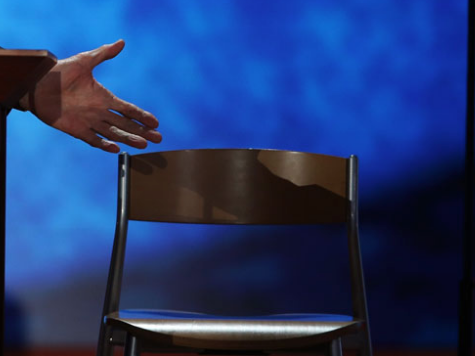The Obama administration claims that President Barack Obama was personally unaware that the National Security Agency (NSA) was spying on thirty-five world leaders, the Wall Street Journal reported Sunday evening. The claim is contradicted by other reports and, regardless, represents only the latest attempt by President Obama attempt to avoid political responsibility by claiming incompetence and dereliction of duty.
The spying was revealed by the UK Guardian, based on leaks by former NSA contractor Edward Snowden. The story told by U.S. officials to the Journal “suggests President Barack Obama went nearly five years without knowing his own spies were bugging the phones of world leaders. Officials said the NSA has so many eavesdropping operations under way that it wouldn’t have been practical to brief him on all of them.”
Yet the German newspaper Bild am Sonntag, cited by the UK Telegraph, reported: “The president allegedly allowed US intelligence to listen to calls from the German Chancellor’s mobile phone after he was briefed on the operation by Keith Alexander, director of the National Security Agency (NSA), in 2010.” Officials told the Journal that “[t]he White House cut off some monitoring programs after learning of them.”
What is most striking is that the Obama administration has, yet again, tried to prove that he knew nothing about a program that could only have been carried out under his personal authority. Likewise, in the Benghazi attack of 2012, the administration claimed that Obama did not personally issue a stand-down order not to intervene, and Secretary of State Hillary Clinton did not personally reject a request for additional security.
In the IRS scandal, the administration has insisted that President Obama know nothing about attempts to target Tea Party groups despite hundreds of visits of key IRS officials to the White House. In the AP/Rosen scandal, Obama claimed he did not know about the surveillance of journalists, and Attorney General Eric Holder may have perjured himself before Congress in claiming no prosecution of journalists had been considered.
In the Fast and Furious scandal, the Obama administration used the same strategy, blaming lower-level officials and the Bush administration for the failure of a gun-walking program that resulted in the death of U.S. Border Patrol agent Brian Terry and hundreds of Mexican victims. The president eventually asserted executive privilege over key documents in the case, resulting in an ongoing litigation challenge in federal court.
Perhaps most astounding of all was Secretary of Health and Human Services Kathleen Sebelius’s recent claim that the president did not know about the numerous problems plaguing the Obamacare website before its launch. The program is Obama’s “signature” domestic policy initiative, one he has defended with personal zeal. Yet the public is told that he knew nothing about its problems and was disengaged from its implementation.
If the question about Richard Nixon during Watergate was, “What did he know and when did he know it,” the question about Obama is: “What didn’t he know and when didn’t he know it?” The president may, in fact, have made it his business not to know: a report revealed that he attended fewer than half of his daily intelligence briefings. It is the only fact that makes his non-excuse of ignorance about NSA surveillance plausible.

COMMENTS
Please let us know if you're having issues with commenting.